14 Of The Best Rabbit Deterrents For Your Garden
Gardening can be a rewarding hobby, but it can also be frustrating when rabbits decide to make a meal out of your hard work. Here are some of the best rabbit deterrents for your garden, which can help you protect your plants and keep those pesky bunnies at bay.
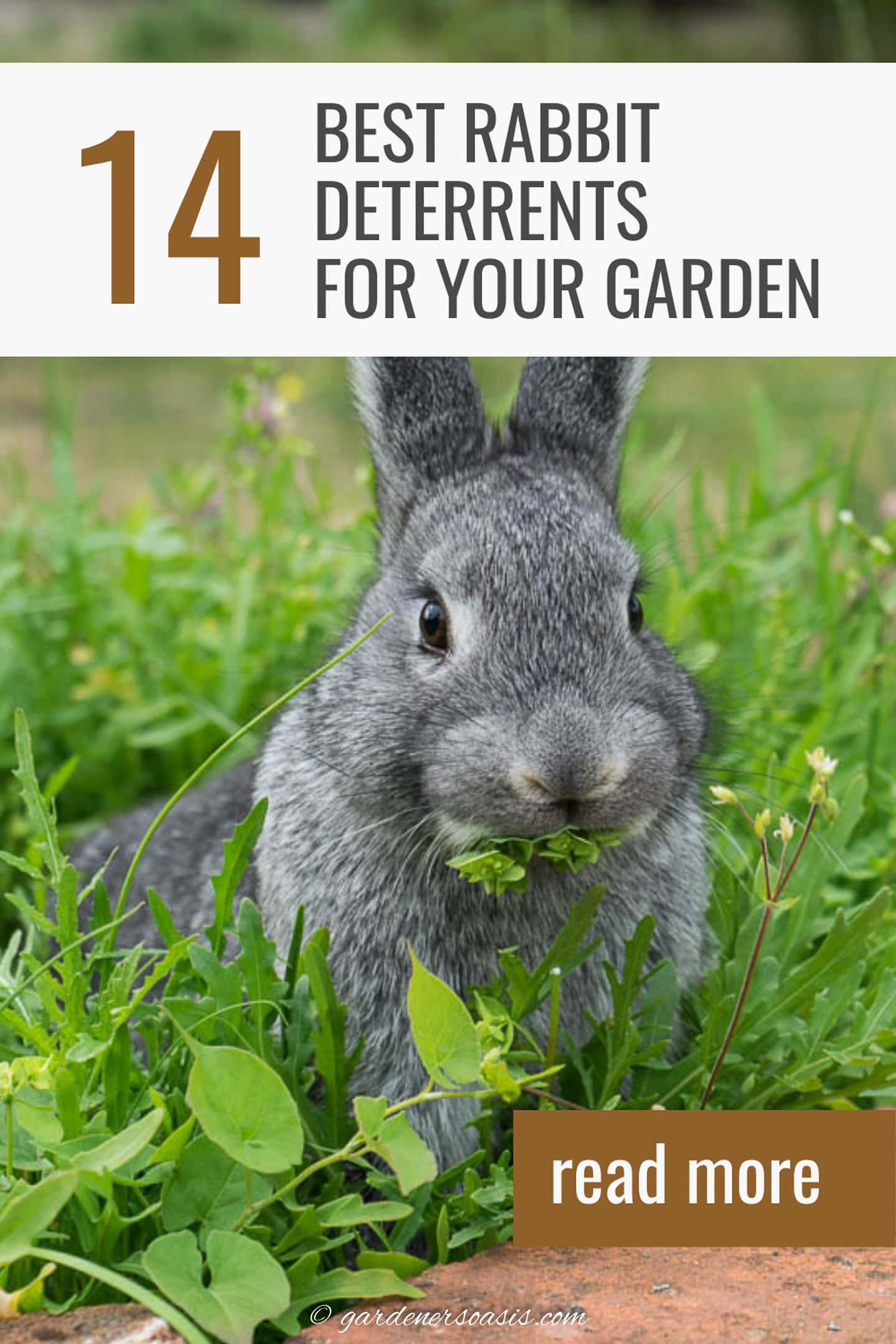
I love my garden.
And I love bunnies. (I have had a few as pets over the years).
But not when they've eaten a whole bunch of my carefully cultivated plants and flowers.
Rabbits, while cute and fluffy, can cause significant damage to a garden, turning your labor of love into a buffet for bunnies.
Fortunately, there are many natural ways to deter these furry invaders and protect your garden from their voracious appetites.
Unfortunately, they don't all work for all situations. So you may have to try more than one (or combine a few methods together) to make your garden completely bunny proof.
1 | Get rid of hiding spots
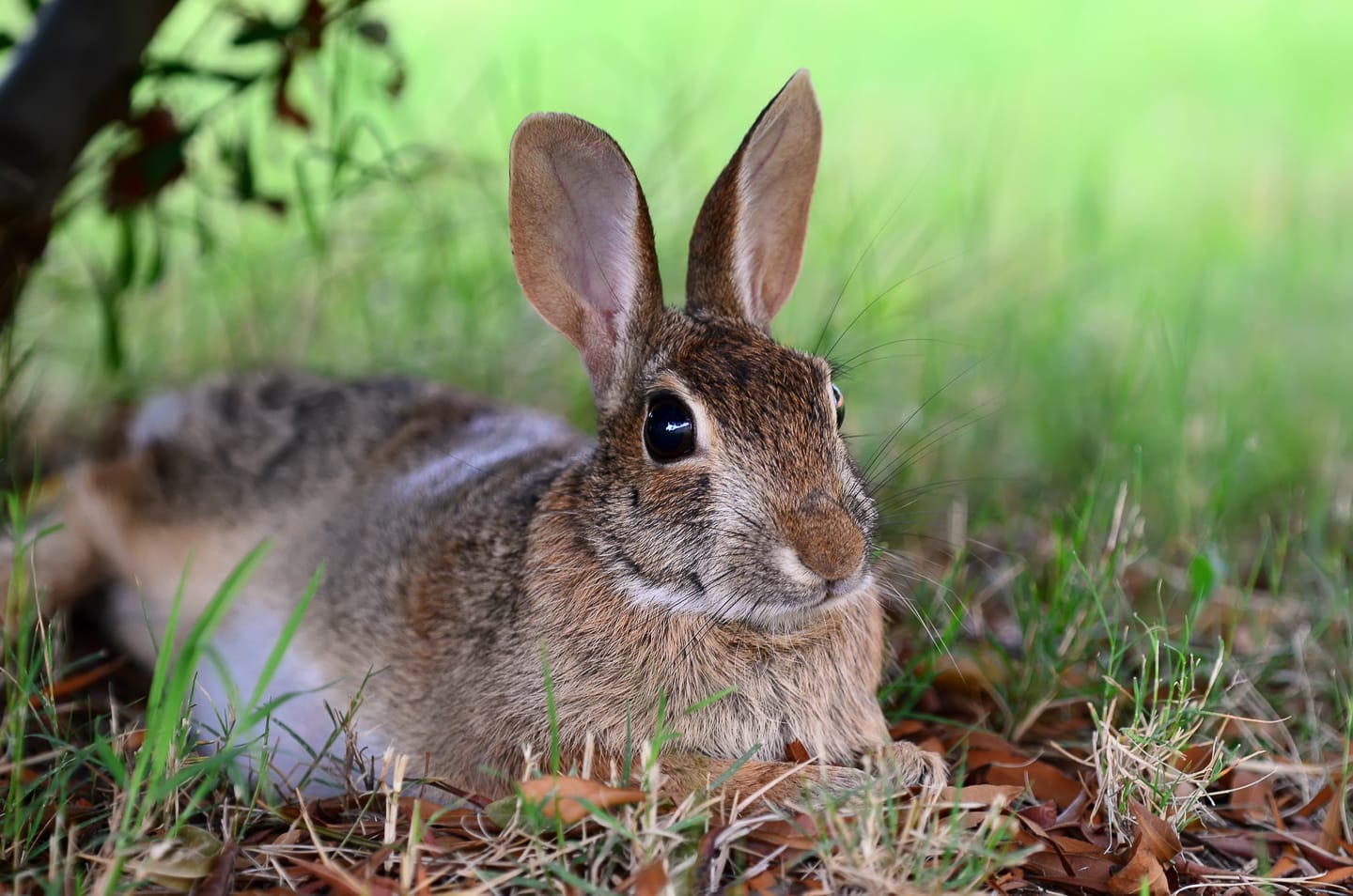
Rabbits are prey animals so they prefer to stay in areas where they can hide from predators.
By eliminating hiding spots in your garden, such as tall grass, brush piles, and low-hanging shrubs, you can make your garden less appealing to them.
This method requires some effort, but it can be very effective, especially when combined with other deterrents.
2 | Put up a small fence
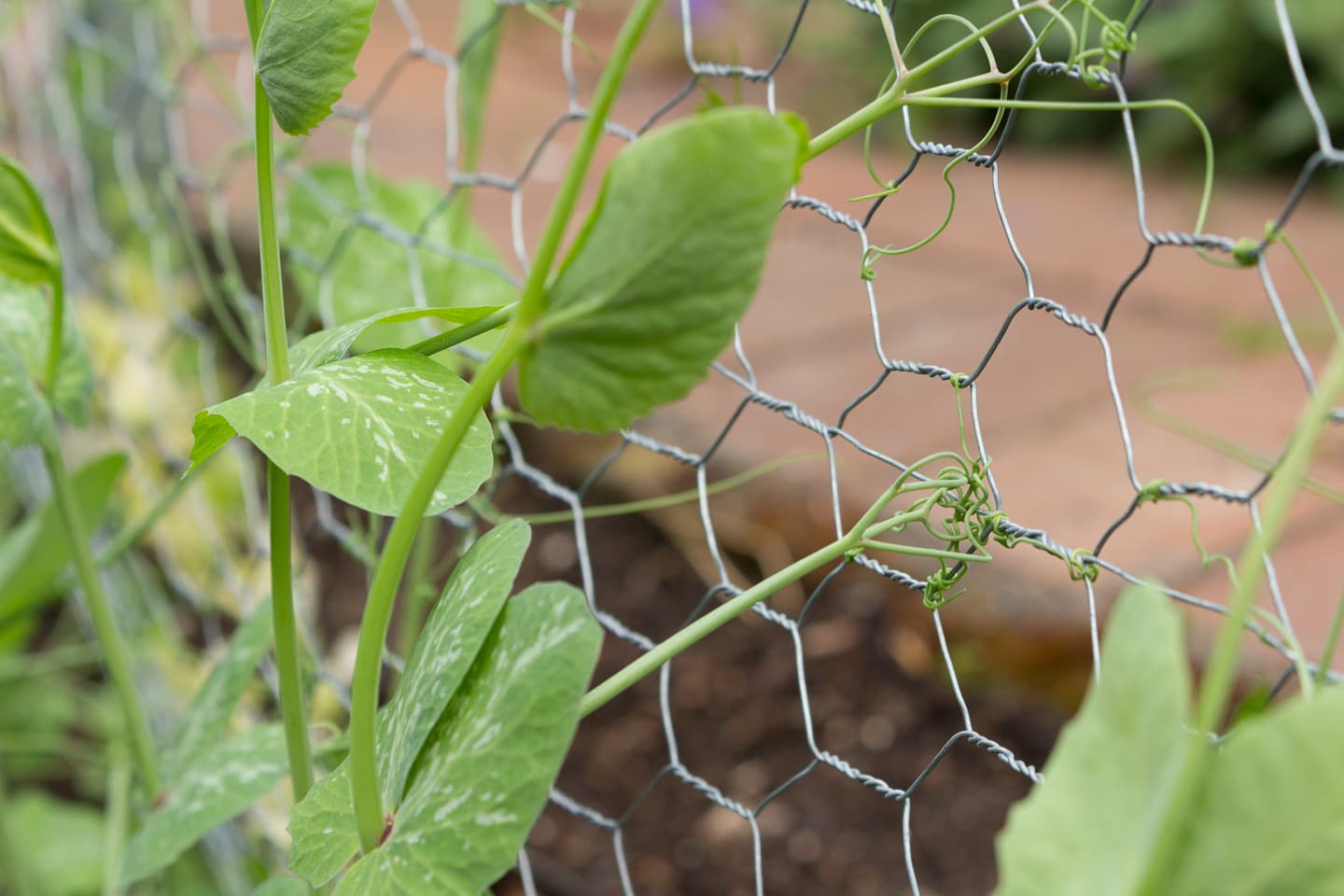
A small fence made from chicken wire can be a very effective bunny deterrent.
Rabbits are good jumpers, but they are not good climbers.
So the fence should be at least 2 feet high with holes that are less than 1 inch across.
However, for jack rabbits (or athletic cottontails), you may need to make the fence taller since they can jump up to 3 feet high.
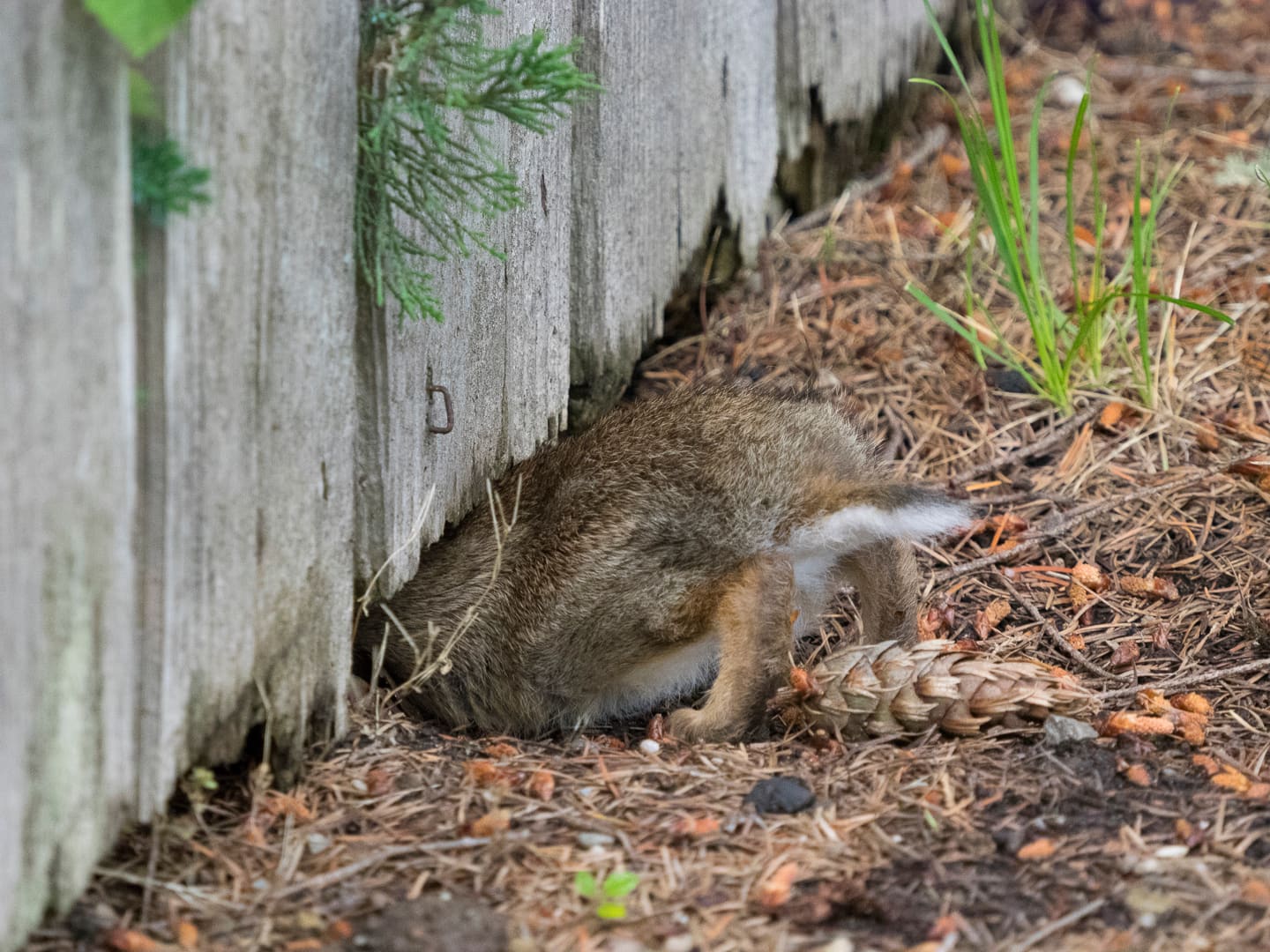
It should also extend at least 6 inches below ground level to prevent rabbits from digging under it.
Bend the top 5 to 6 inches of fence away from the garden to make it harder to jump over.
Do not use plastic since they will chew right through it.
If you have permanent fencing with a gate, make sure to add metal flashing to the bottom of the gate so they can't squeeze under.
3 | Use plant collars
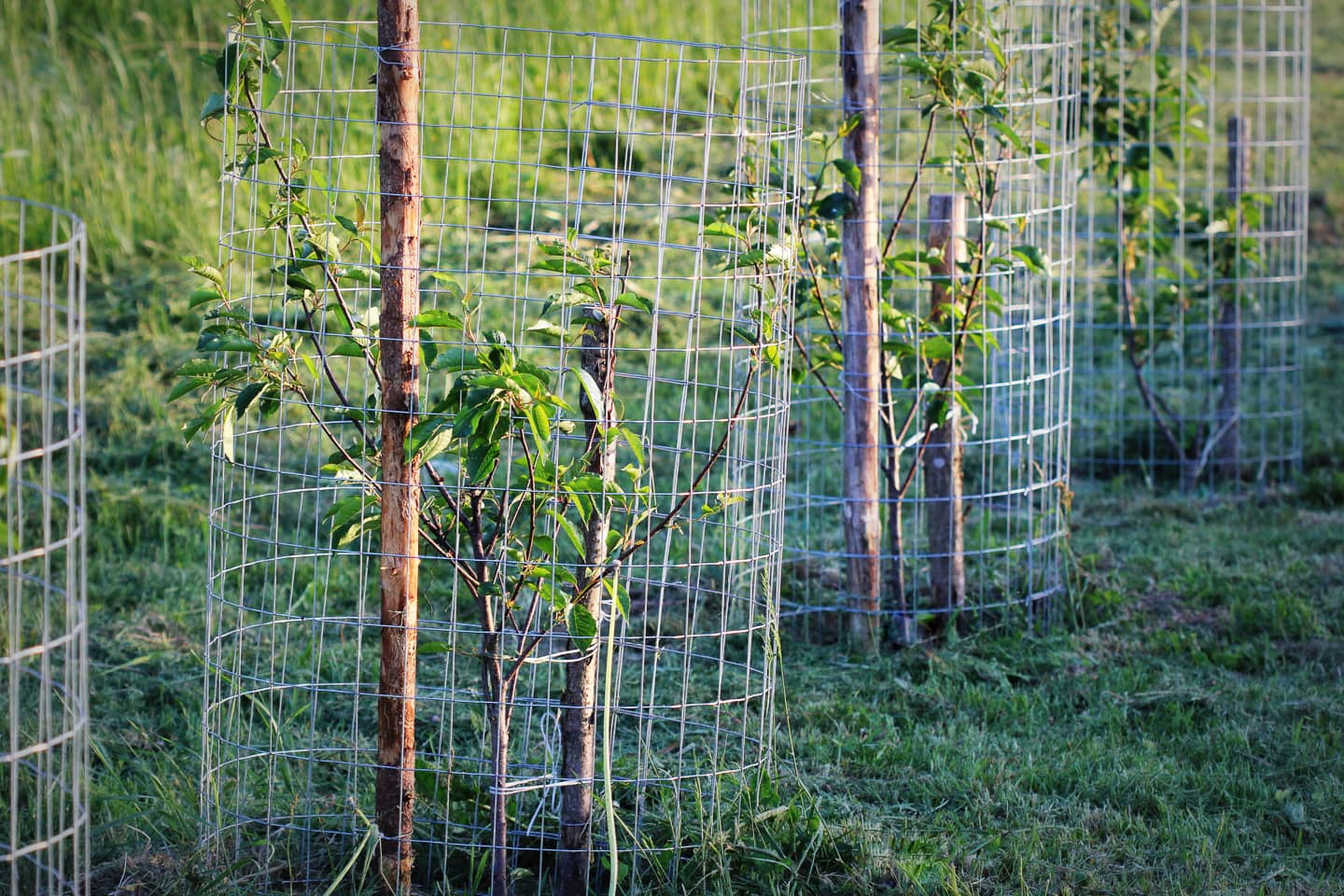
Young trees and shrubs are particularly vulnerable to rabbit damage, especially in the winter.
You can protect them by installing tree guards or wrapping the tree trunks with wire mesh.
This will prevent rabbits from gnawing on the bark, which can cause serious damage or even kill the tree.
You can use the same approach with individual plants if you only have a few that need to be protected.
4 | Encourage natural predators

Encouraging natural predators (such as owls or hawks) to visit your garden can create a sense of danger for rabbits, leading them to seek safer grounds elsewhere.
Similarly, if you have a dog (or outdoor cat), allow it to spend time in your garden.
The scent alone can be enough to keep rabbits away.
Be careful when using dogs for this.
If you have a hunting dog, it may harm or kill the rabbits (which may or may not be what you want).
Or if you have a dog with a “live and let live” attitude like I did, it may not work at all. I could see rabbits in my garden even when he was out in the yard. Not scared at all!
5 | Give them their own space
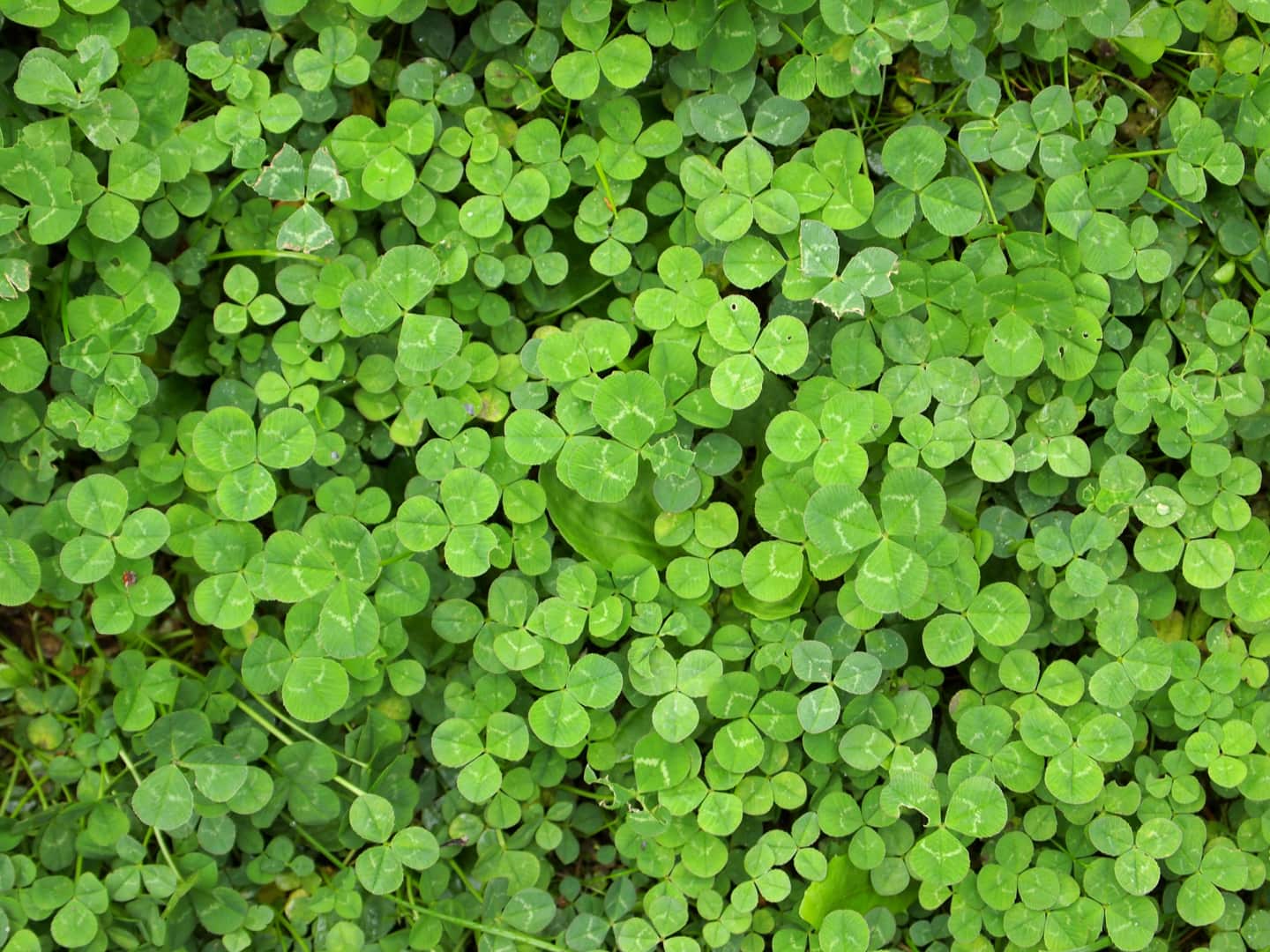
If you have the space, consider giving the rabbits their own garden area.
Planting things like alfalfa and clover can keep the rabbits occupied and away from your main garden.
If you don't mind clover in your lawn, overseed with it.
The clover will actually help the lawn since it adds nitrogen back into the soil. And rabbit droppings make excellent fertilizer.
This works most of the time in my yard, although they do occasionally venture into my garden to chomp on their favorite plants.
6 | Plant rabbit resistant plants
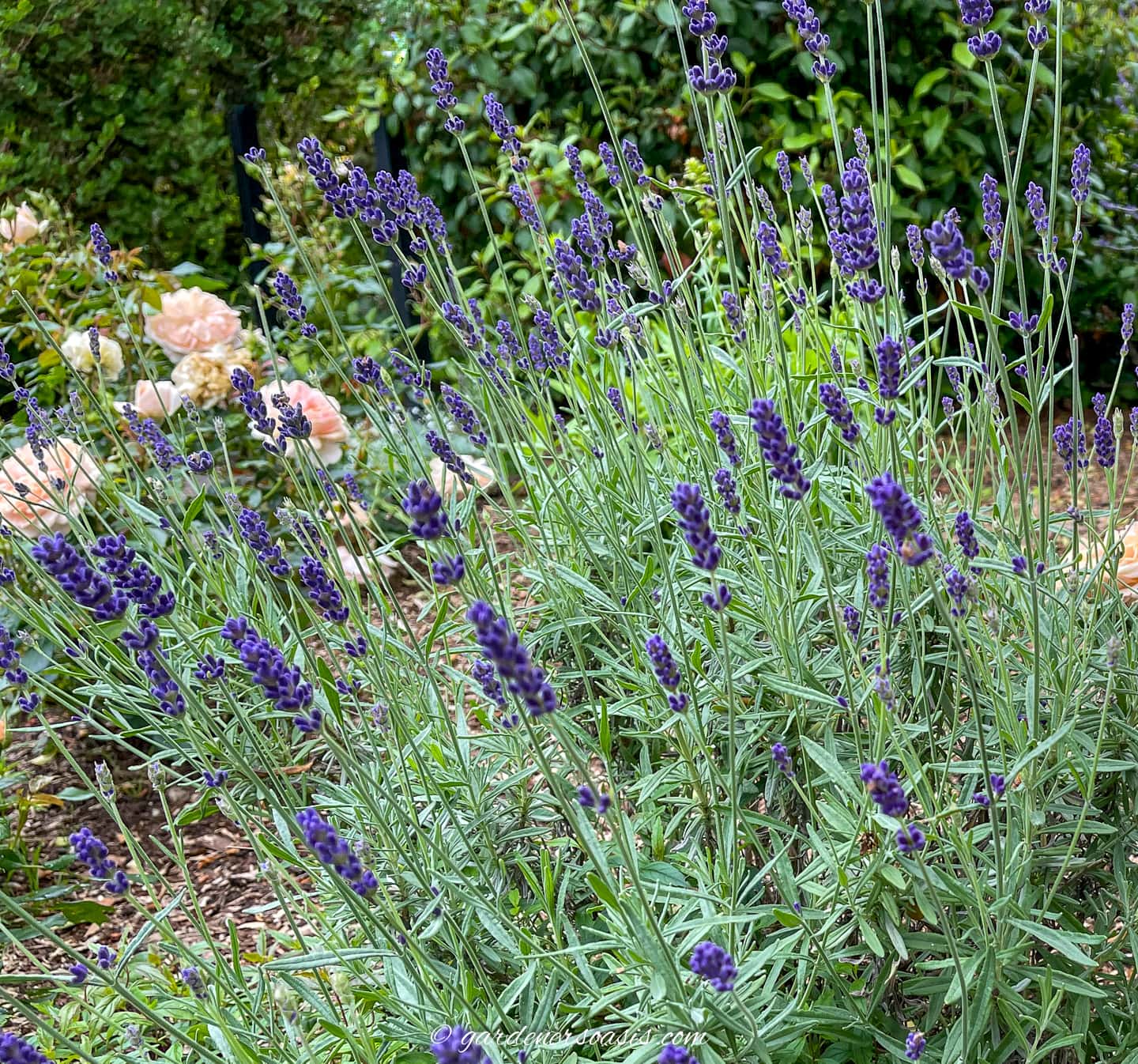
One way to prevent rabbits from eating plants is to surround them with other plants that rabbits don't like.
These usually have strong scents or are bitter-tasting plants (such as oregano, salvia, basil and lavender) that encourage the bunnies to look elsewhere.
By using this rabbit deterrent method, I have finally been able to see my ground orchids blooming. Rabbits love them! But apparently not enough to go through the circle of pulmonaria plants now surrounding them.
However, I learned the hard way that this can also have unintended consequences.
Rabbits sometimes nest in strong-smelling plants (such as Oregano) because it hides the scent of their babies from predators. (Yes, this happened in my garden!)
So you might want to choose woody plants or varieties that are not as full, such as rosemary, garlic, or onions.
7 | Make homemade rabbit repellent
Gardeners can easily make DIY rabbit repellent from dawn dish soap, cayenne pepper and garlic.
It's inexpensive and all the ingredients are safe to use on and around vegetables as well as other plants.
But it will need to be reapplied after watering and rainfall.
You can find a recipe HERE.
8 | Spray Liquid Fence
If you're not looking for a homemade remedy, store-bought repellents are a great way to discourage rabbits from eating your garden.
Products like Liquid Fence Deer & Rabbit* can be sprayed on and around plants to make them less appealing to rabbits.
These products are made from natural ingredients and do not harm the vegetation.
While it is somewhat rain resistant, it does need to be reapplied regularly, usually once a month, to maintain its effectiveness.
9 | Sprinkle blood meal or Milorganite
Blood meal* and Milorganite are both organic fertilizes that can also work as a natural rabbit repellent.
Rabbits don't like the smell of them and tend to stay clear of areas that are sprinkled with them.
However since they are both fertilizers, be careful not to put down too much, as that can harm your plants.
10 | Build raised beds
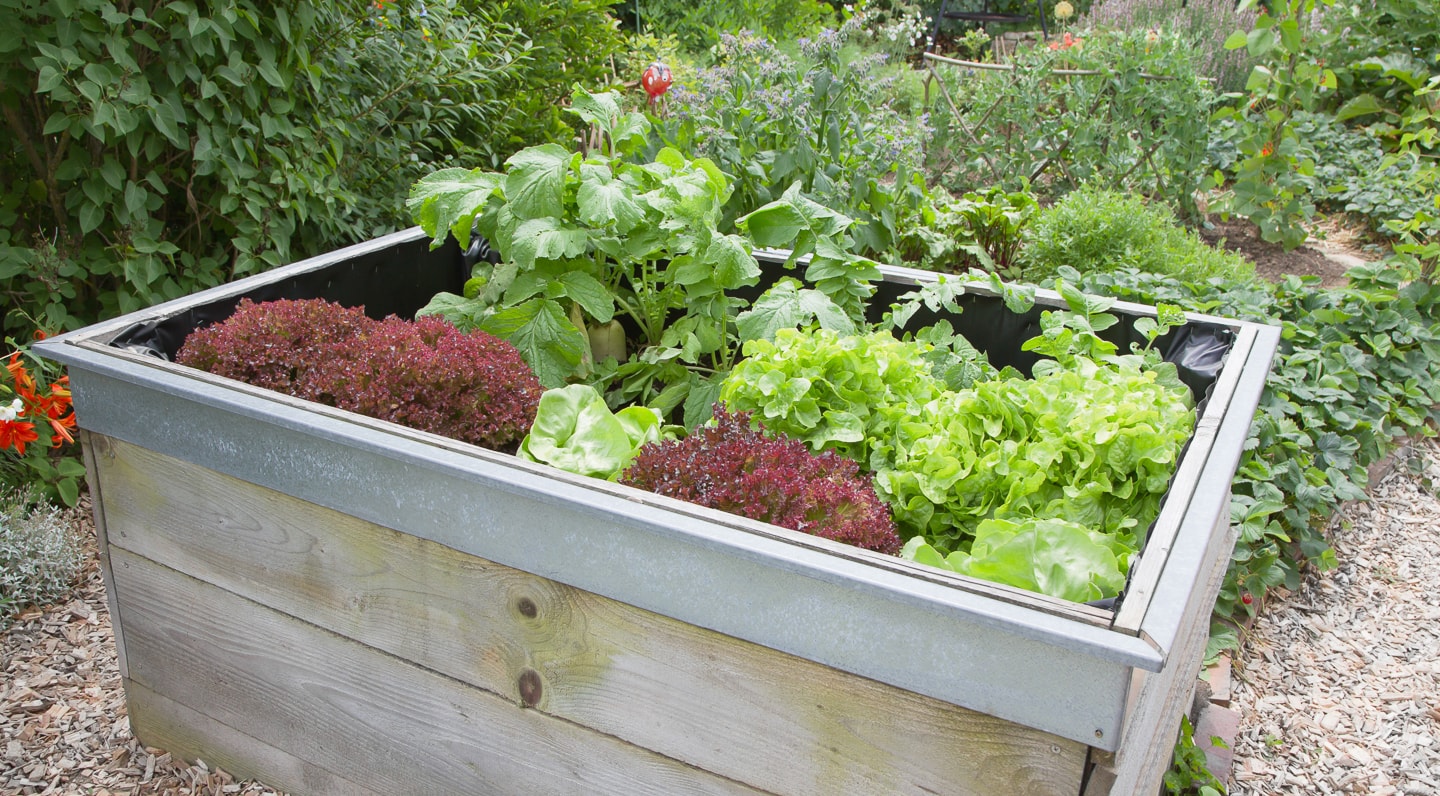
Planting vegetables and prized flowers in raised beds or tall containers will keep the bunnies from being able to reach them.
Just make sure that the top of the beds are at least 3 feet off the ground so the rabbits can't jump onto them.
11 | Spread human or dog waste
Another inexpensive way to rabbit proof your garden is by spreading human or dog hair or urine around the edges of your yard.
If you have the stomach for it, urine usually works better than hair since it has a stronger odor.
And it will need to be re-applied after it has rained.
12 | Scare them

Rabbits are skittish creatures, so unexpected noises or movements startle them away.
To take advantage of this, put out motion-activated sprinklers, fake predators like snakes or owls, wind chimes, or even aluminum pie pans hung from strings.
The sudden movement or noise can make them think twice about entering your garden.
While these methods can be effective initially, rabbits may eventually get used to them. So, it's a good idea to change up your scare tactics regularly to keep them guessing.
13 | Use ultrasonic Rabbit Repellent
While some gardeners swear by ultrasonic devices as a means to deter rabbits, others find them less effective.
These devices emit a high-frequency sound that is supposed to be unpleasant, but in practice, their efficacy can vary.
It's worth noting that these devices are humane and don't harm the rabbits, but they may not be the most reliable solution.
14 | Put up Reflectors
Finally, using reflectors or mirrors can be a simple and inexpensive way to scare off rabbits.
Many bunnies are afraid of their own reflection, especially when they see movement reflected back at them.
Foil pie plates hung from low stakes work quite well.
How to recognize rabbit damage?
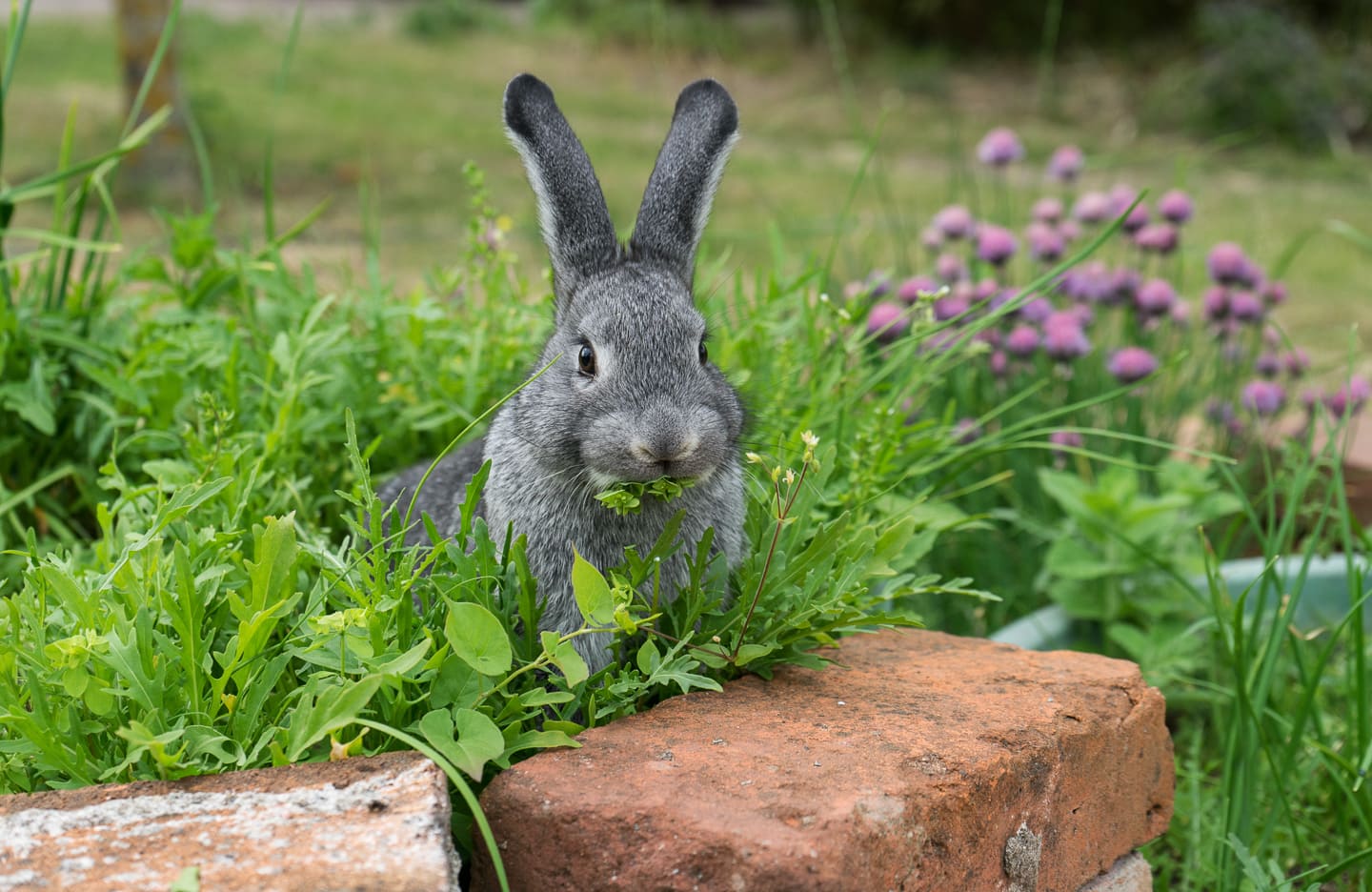
If you're not sure whether or not the plant damage you're seeing is from rabbits, look for these tell-tale signs:
- All of the damage is less than 2-feet off the ground. Higher than that and it's more likely to be deer.
- Clean cuts on plants as though they were trimmed with scissors (as compared to deer which tear the leaves off leaving ragged edges).
- Small round brown pellets on the ground that are about the size of a pea. This is rabbit poop. It's very good fertilizer so you might just want to leave it there.
- In the winter, rabbits will gnaw on trees, twigs and shrubs, with young plants being more susceptible than older ones.
Frequently asked questions
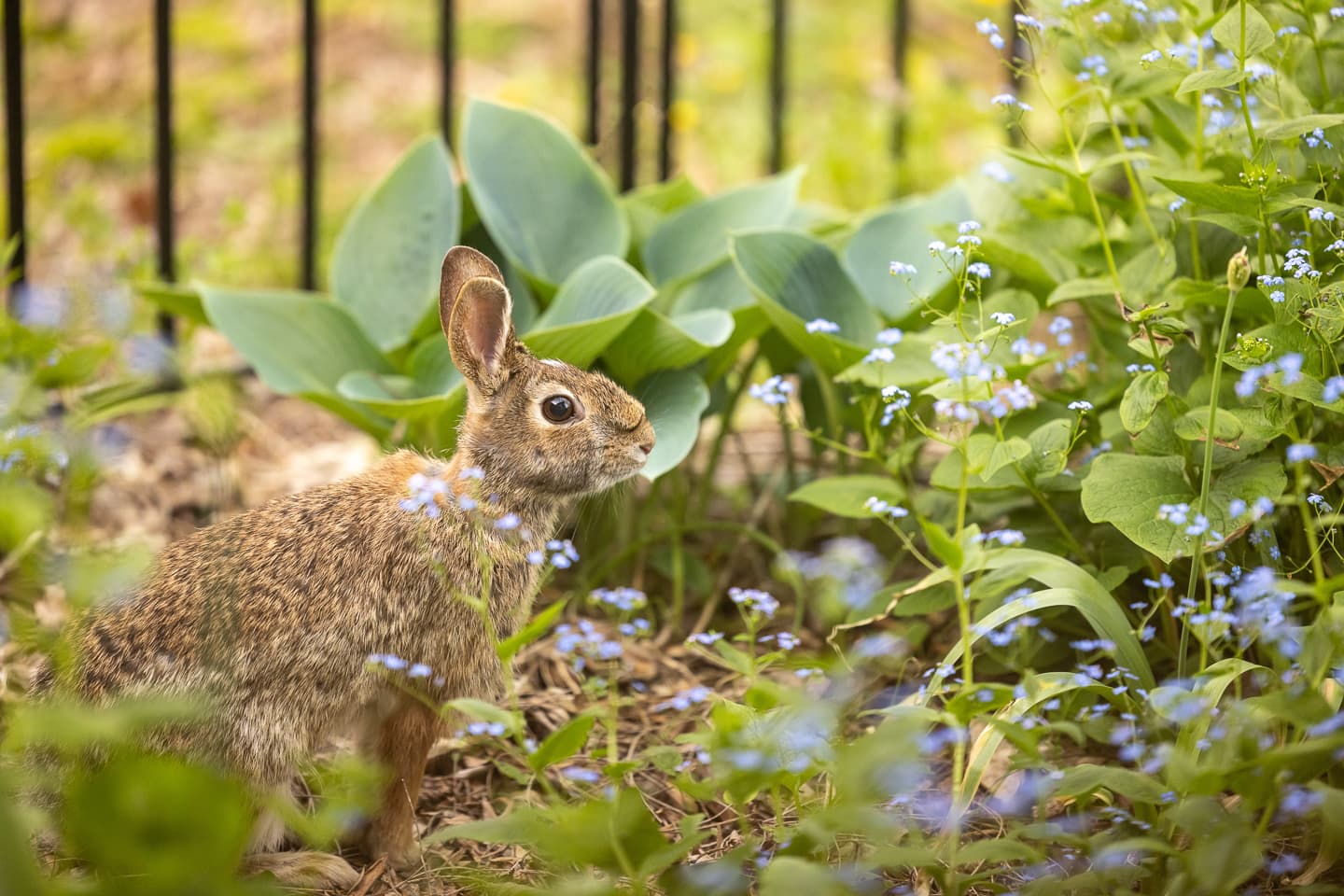
What smells do rabbits hate?
Rabbits are repelled by the scent of strong herbs and spices (such as garlic, oregano and hot pepper) and anything that smells like a predator (such as dog urine or blood meal).
Will mothballs deter rabbits?
While they may work, mothballs are not recommended as a rabbit deterrent. They contain chemicals that can be harmful to rabbits, pets and other animals.
What can I spray on my flowers to keep rabbits away?
There are many commercial rabbit repellents available that can be sprayed on flowers to keep rabbits away. These products typically contain ingredients that taste or smell unpleasant to rabbits. Or, you can make your own spray repellent by mixing water with dish soap, garlic and red peppers.
What is the best rabbit repellent?
The best rabbit repellent depends on your specific situation. Some people find that commercial repellents (such as Liquid Fence*) are very effective. While others prefer natural deterrents, such as garlic or hot pepper. It may take some trial and error to find the best solution for your garden.
Other pest control ideas you might like
- How to keep deer out of your garden
- 10 natural insect repellents that actually work
- How to keep critters out of patio boxes
Or read all of our gardening tips.
Have comments or suggestions for rabbit deterrents that work? Tell us in the section below.
This post was originally published on July 26, 2023 but was updated with new content on November 23, 2024.

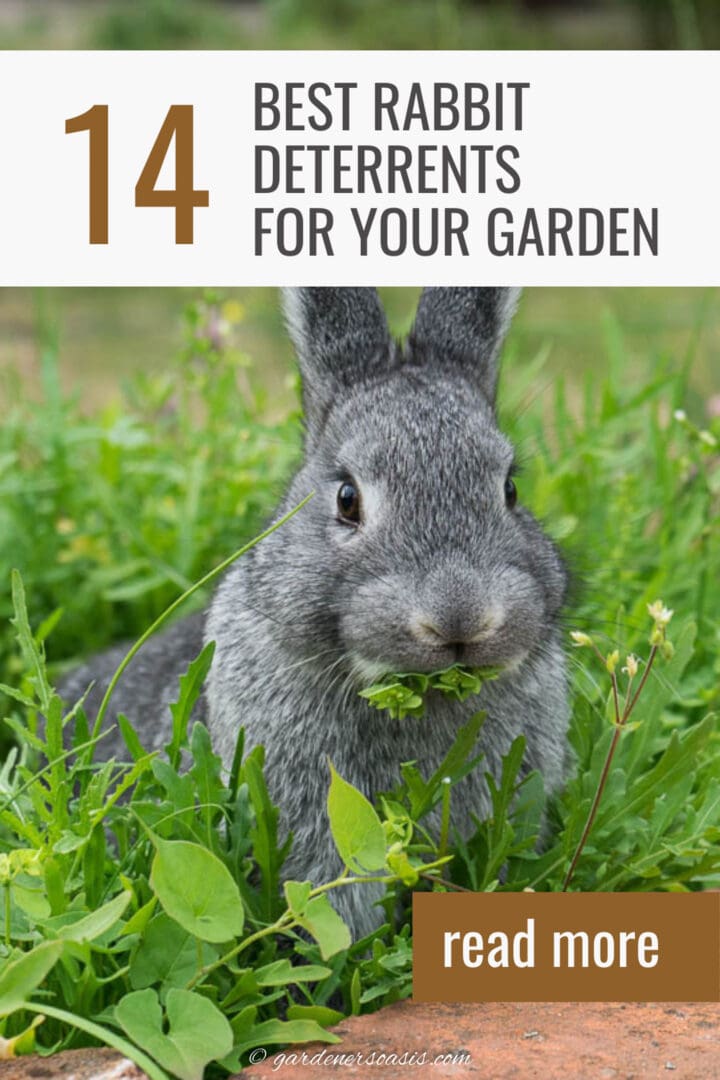
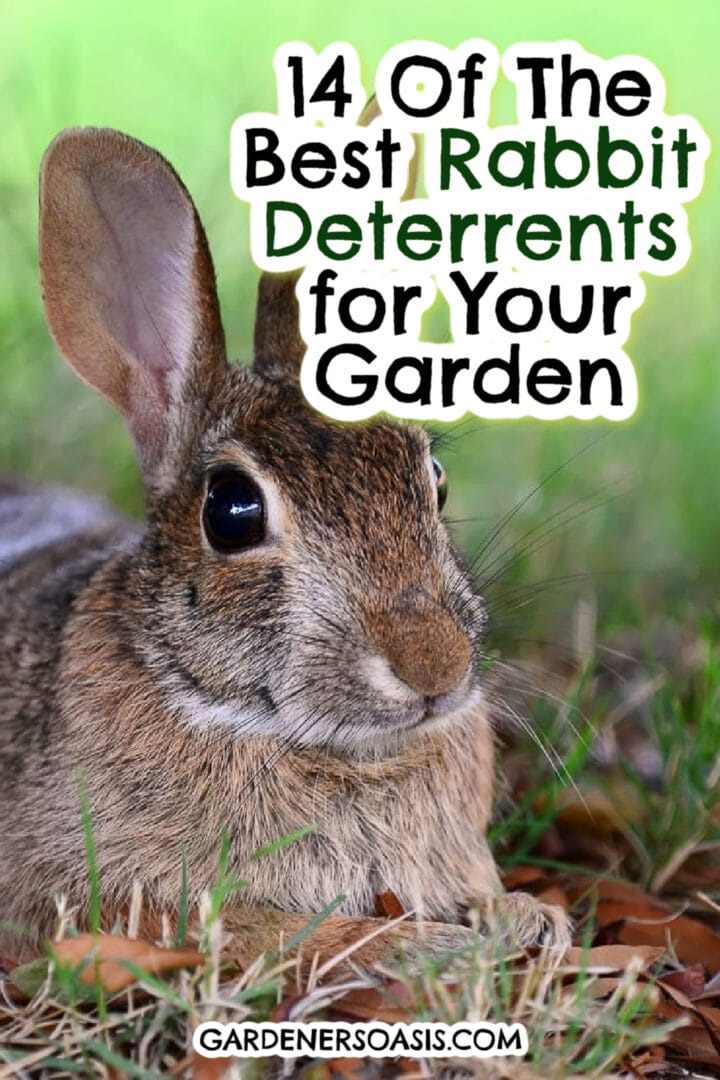
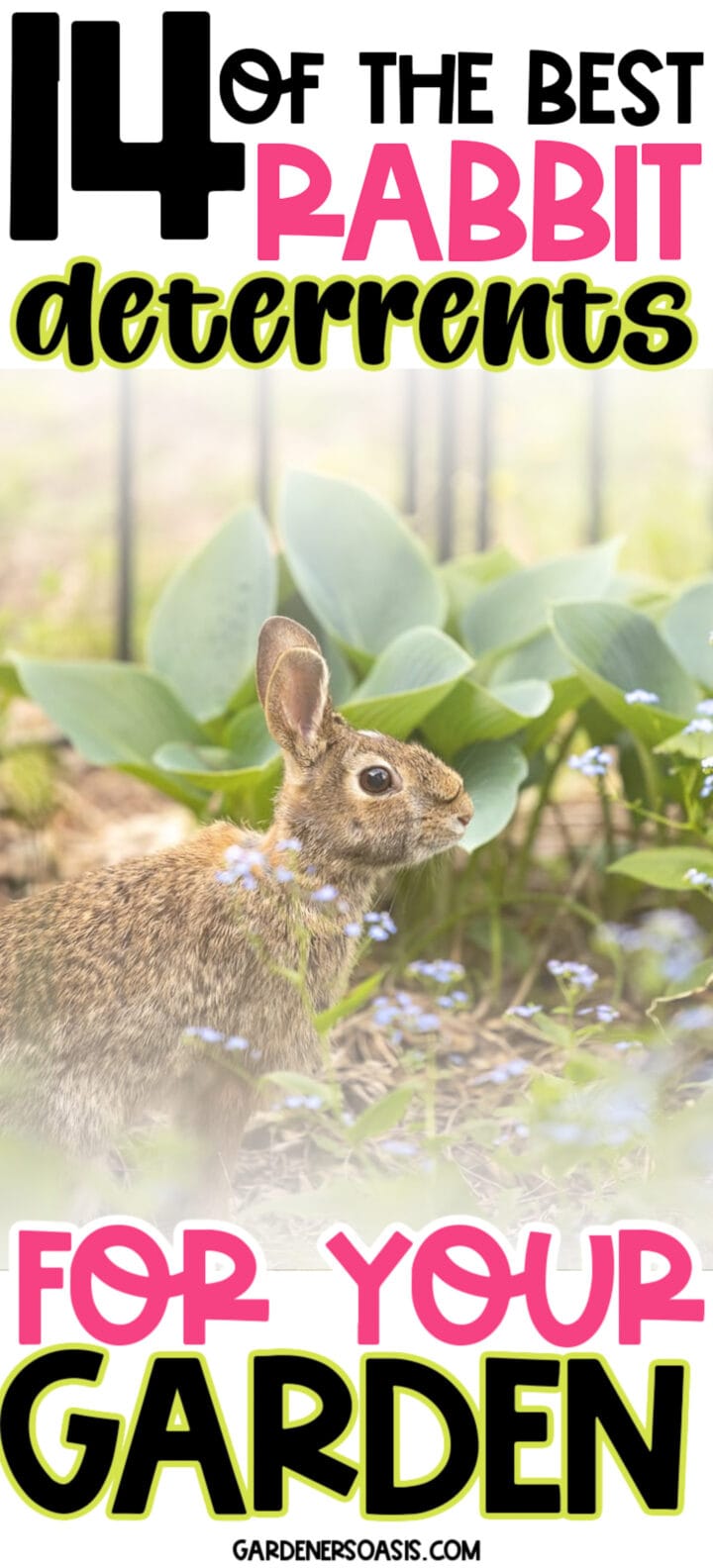
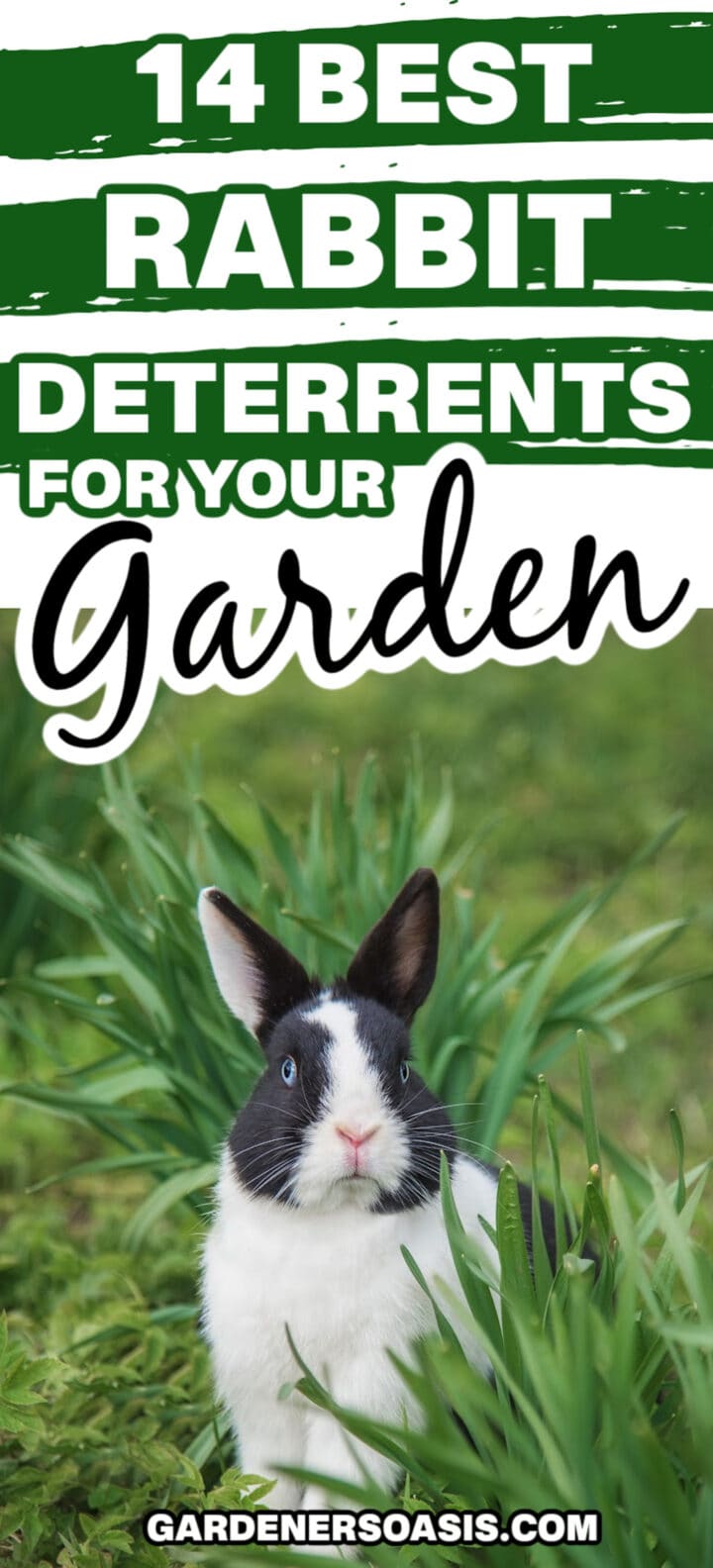

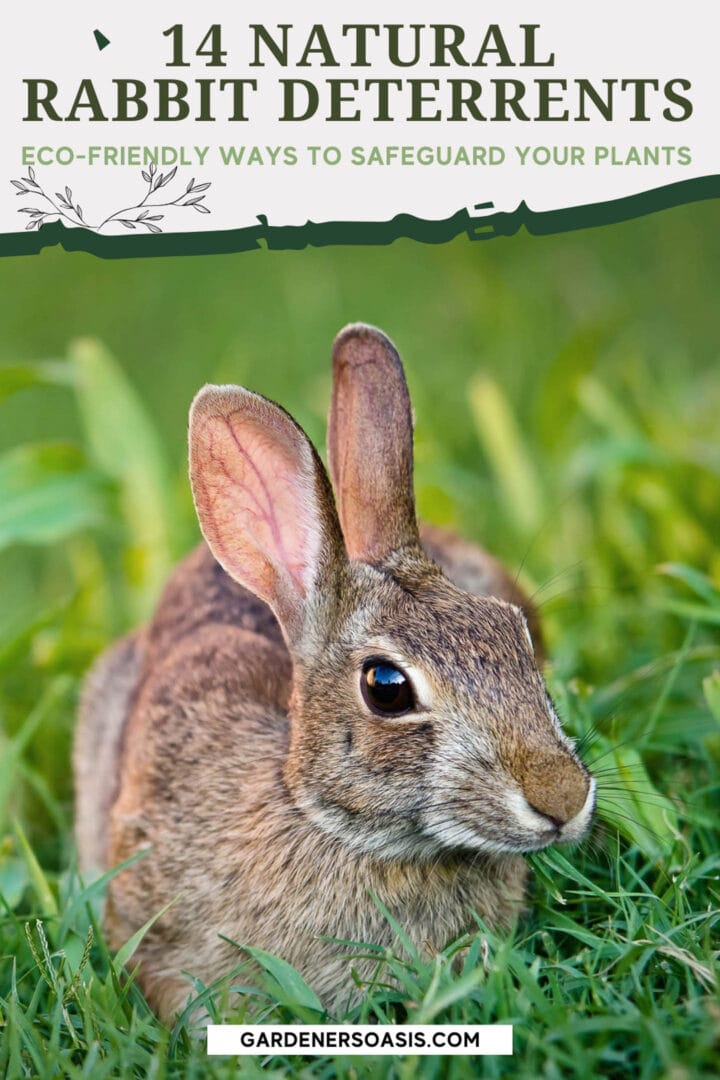

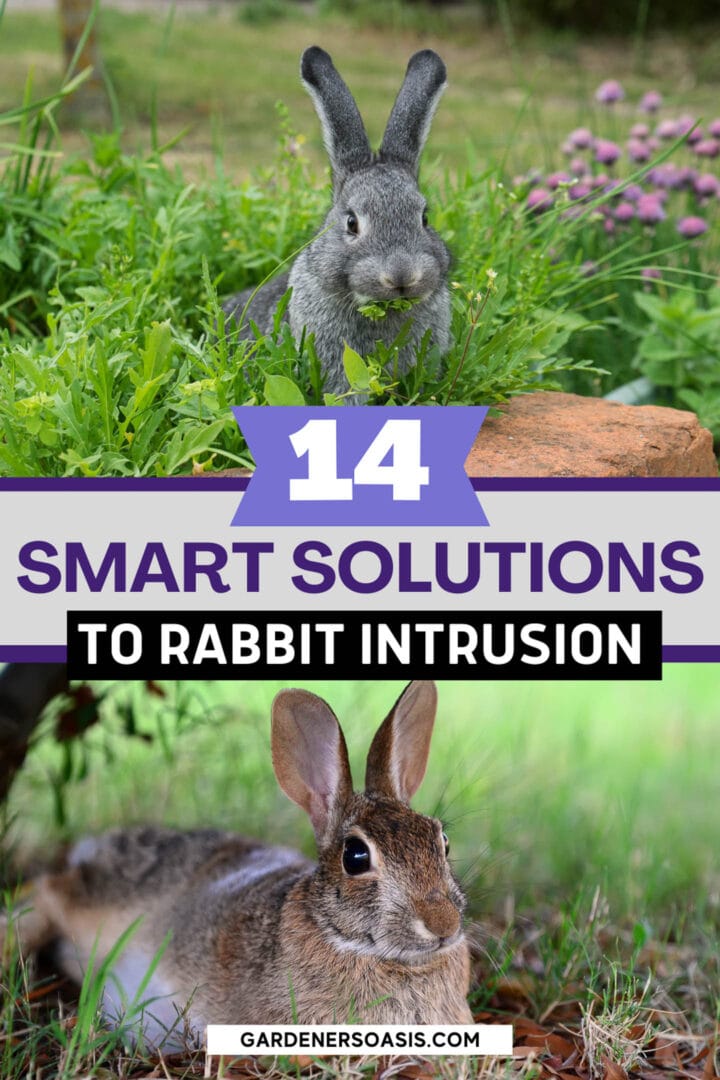
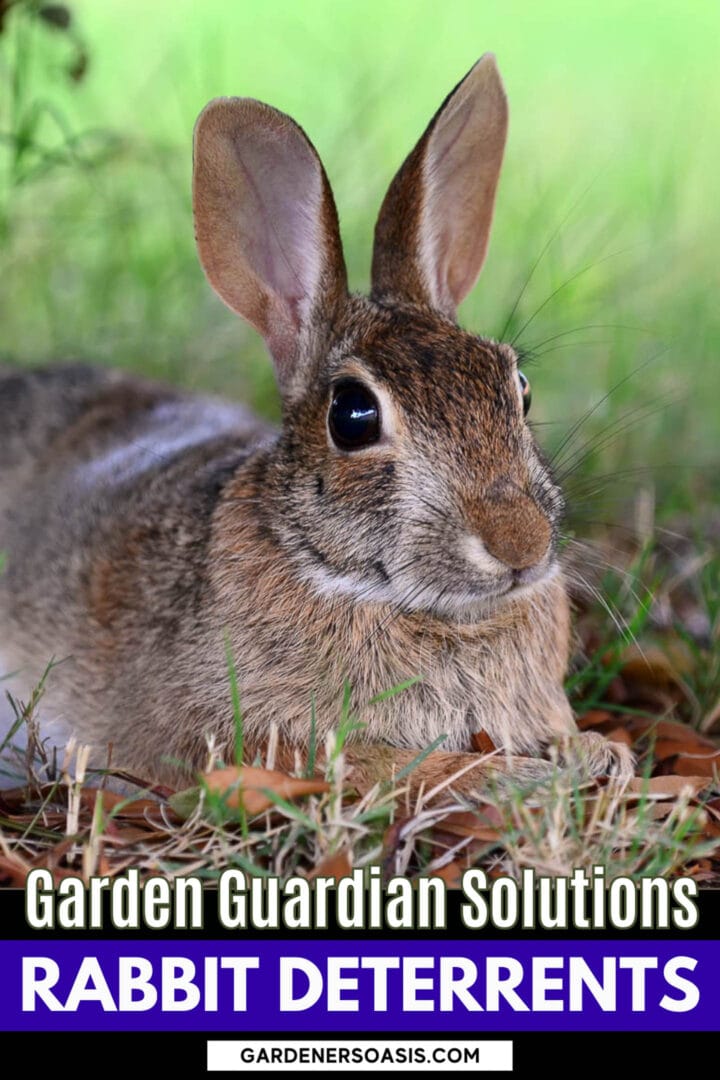
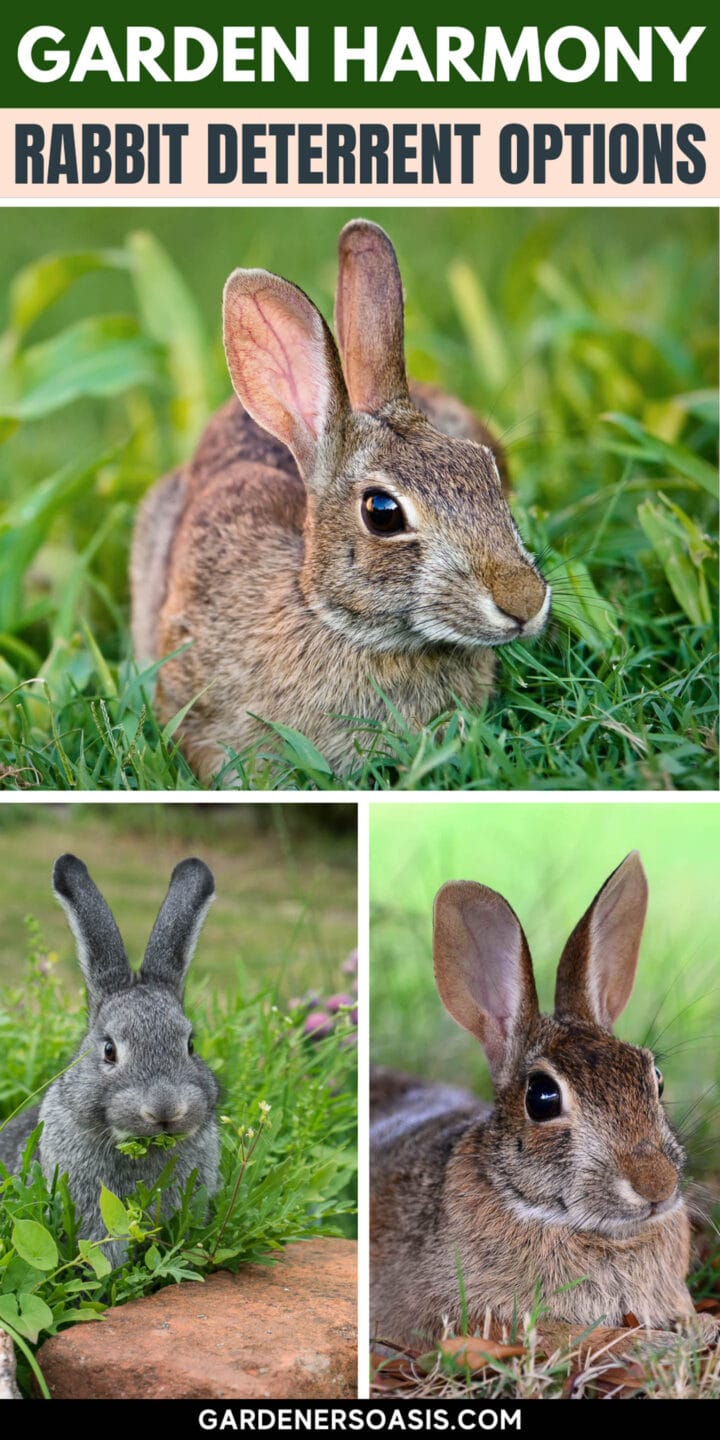
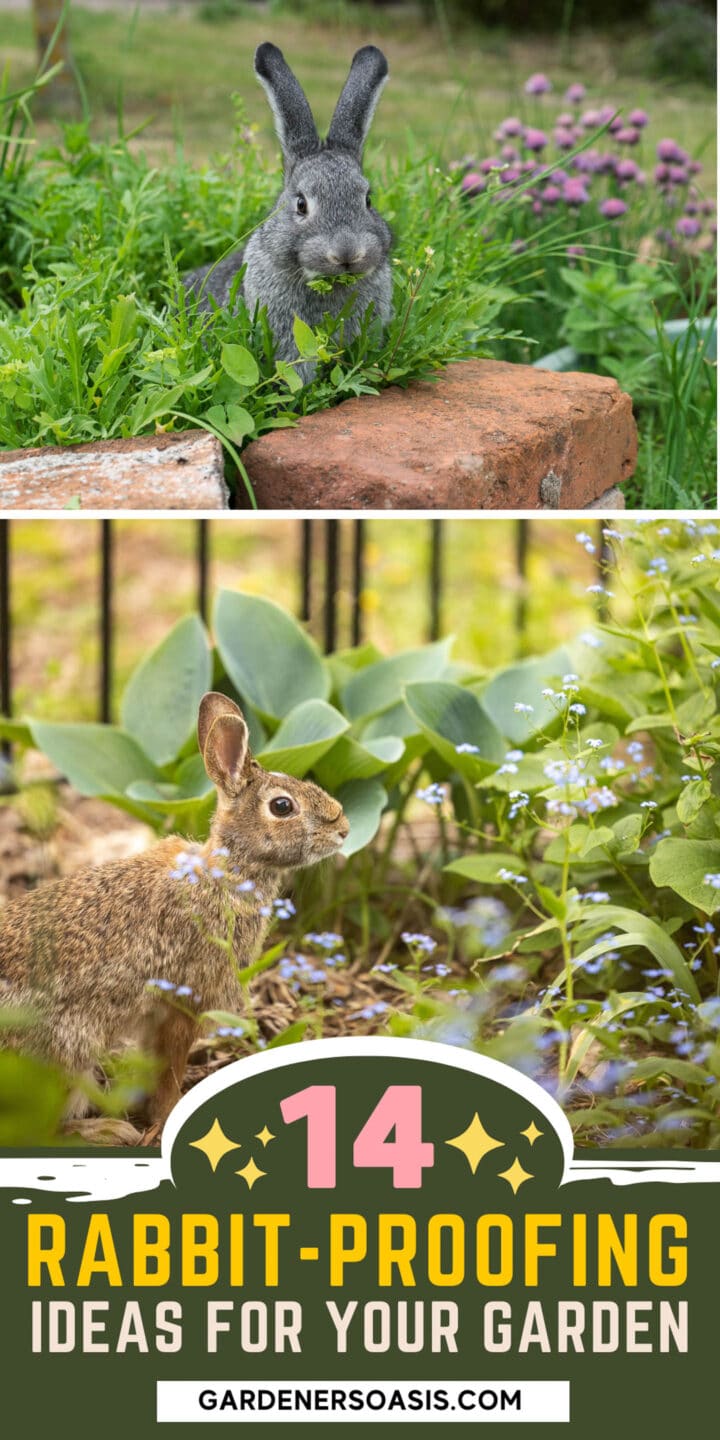
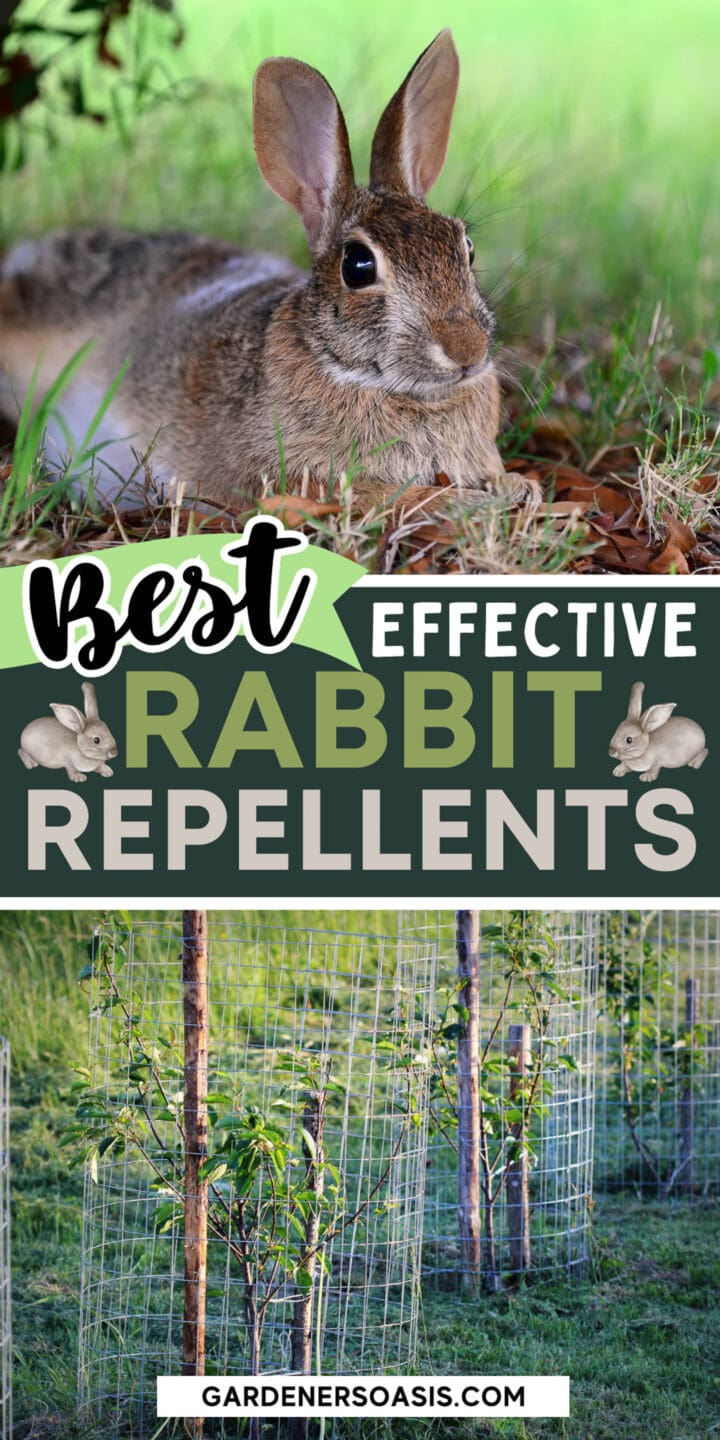
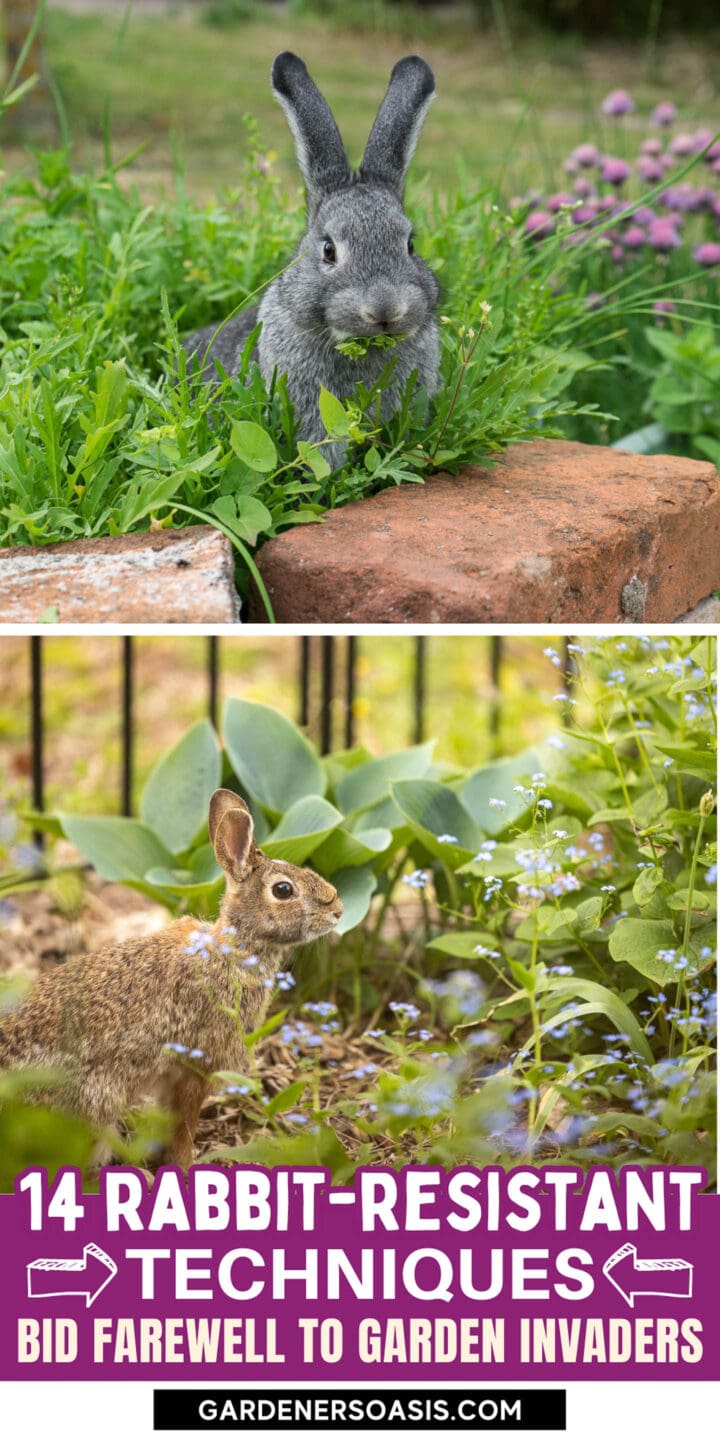
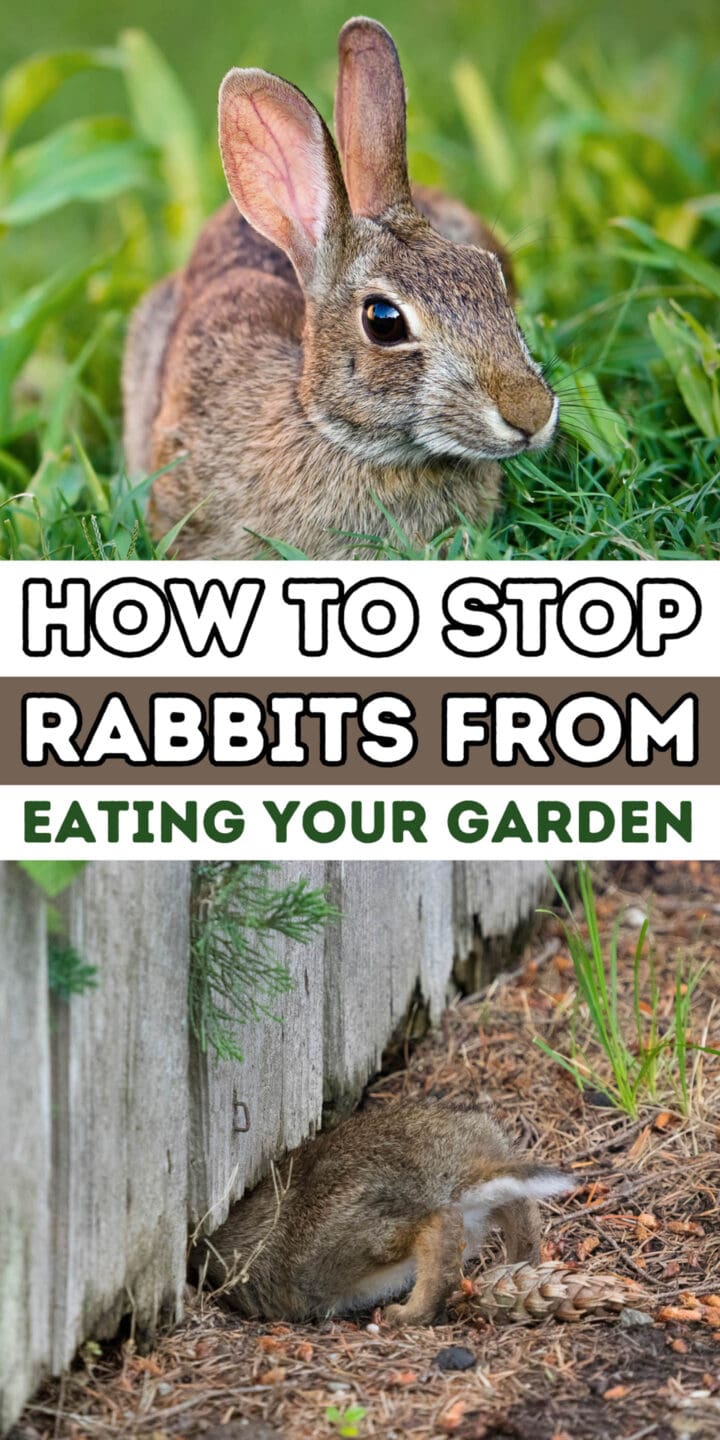



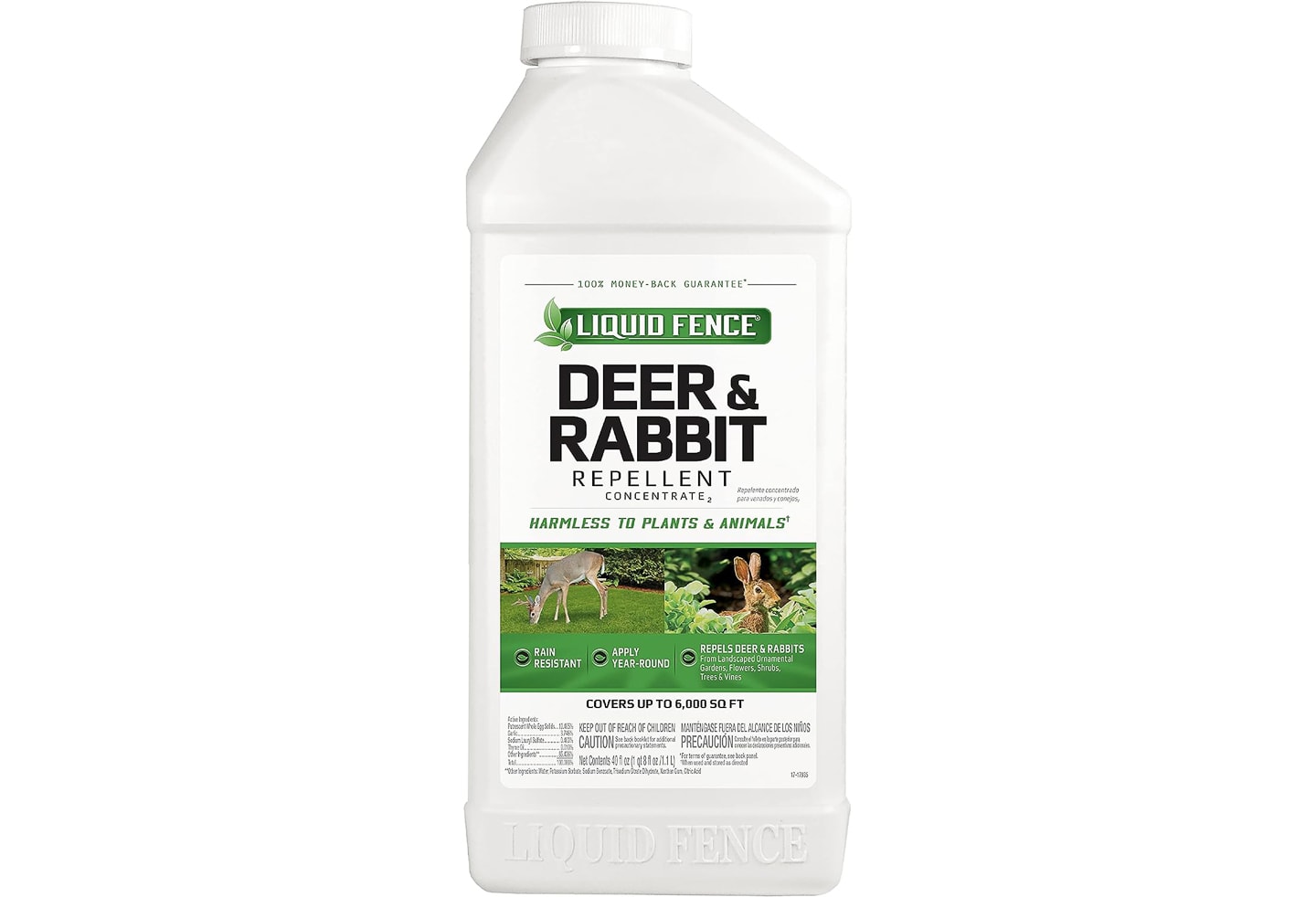

Hi Wanda, I had this problem living in an Ottawa suburb (4 houses over 35 years). It was originally prime farmland. The most frustrating was when my beautiful Japanese ferns would start to emerge and would wake up the next morning to find them eaten. I tried different remedies. The one that worked best for me was dog fur clippings. We had always had poodles. My husband groomed and clipped their fur. I read once to put the fur around the plants! Bingo! It worked. This was the easiest and least time consuming method for me.